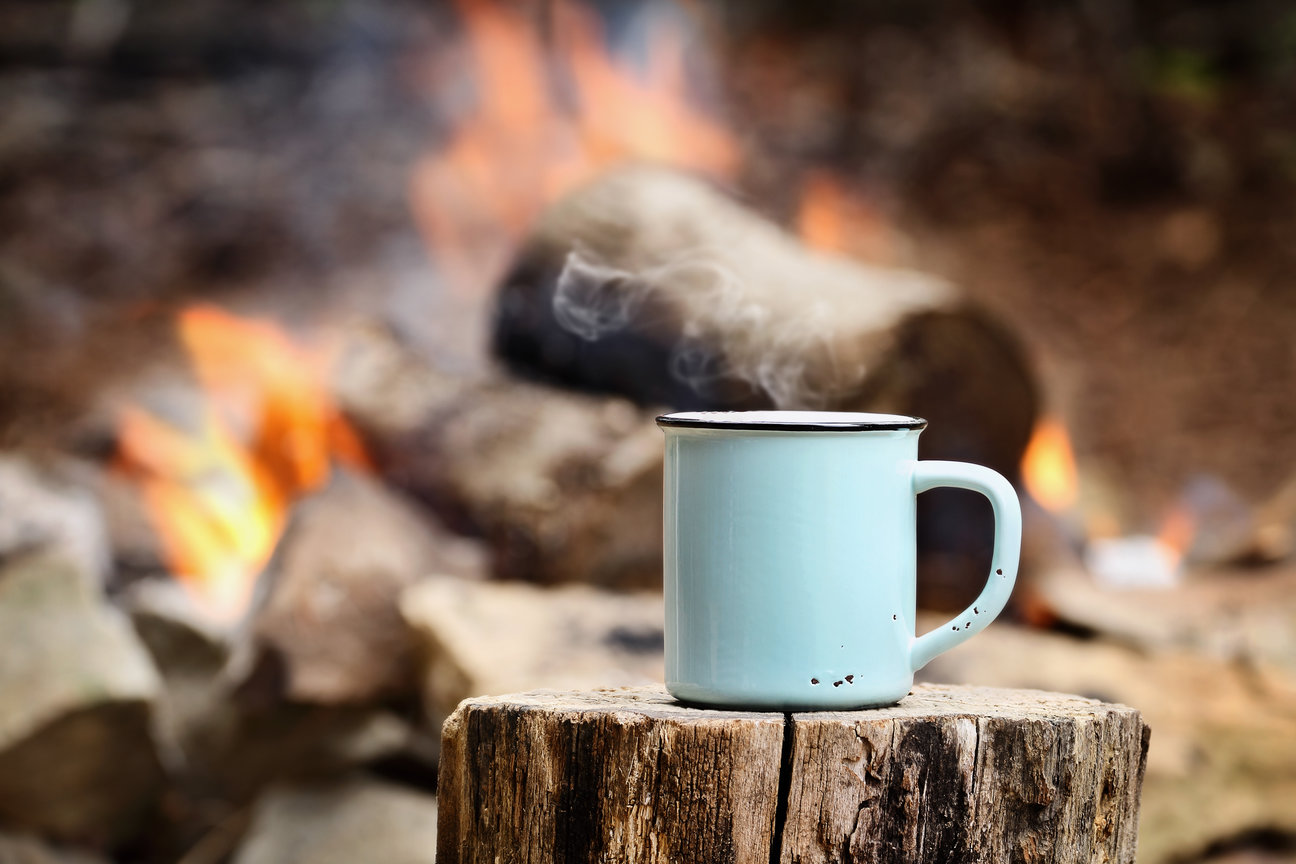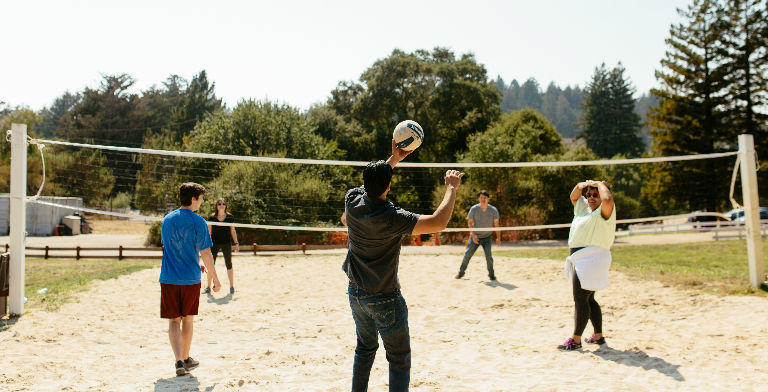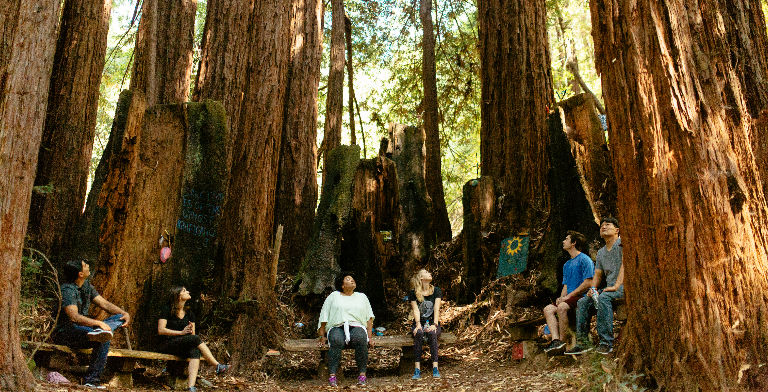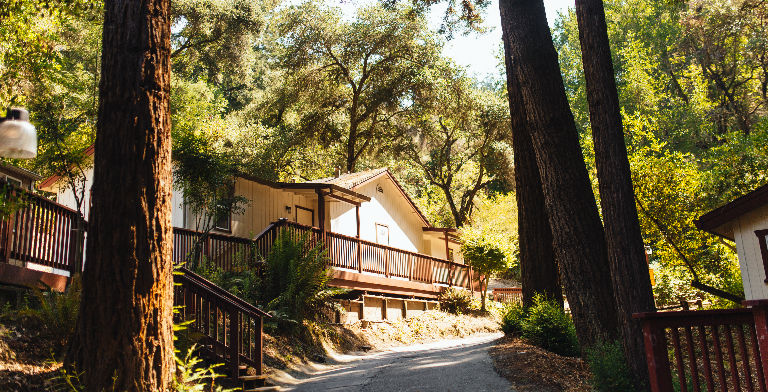The Camp Recovery Center helps adolescents & adults struggling with addiction & co-occurring anxiety find long-term recovery. Located near Scotts Valley & San Jose, CA, The Camp provides premier substance abuse rehabilitation & anxiety disorder treatment.
Anxiety Treatment
Anxiety Treatment Near Santa Cruz & San Jose
When a person suffers from an anxiety disorder for a long period of time without entering a rehab center or seeking treatment, it is probable that a number of adverse effects will occur as a result. Academic performance will likely be stunted, occupational functioning will be hindered, and adherence to responsibilities at home can be impacted by untreated anxiety disorder symptoms. Furthermore, if a person resorts to unhealthy methods for coping with his or her anxiety, the subsequent outcomes could be even more devastating. Substance abuse, for example, is often a go-to means of coping for individuals with untreated anxiety, of which could lead to worsening anxiety symptoms, damage to a person’s physical health, and a whole host of other detriments that carry the potential to wreak havoc on an individual’s life.
At The Camp Recovery Center, we understand the many ways in which an anxiety disorder can affect a person’s functioning when symptoms are left untreated. We also understand the complex nature of treating this type of mental health condition when a substance use disorder is present at the same time. For these reasons, we are pleased to offer the life-saving rehab that has helped thousands of men, women, and adolescents manage anxiety symptoms and recover from addictions to drugs and alcohol. Through the use of proven effective treatment methods and an unparalleled dedication to improving the lives of people battling substance abuse problems and co-occurring mental health conditions, The Camp Recovery Center is where people of all ages can embark on a truly transformative rehab journey and achieve the healthy, drug-free lives they deserve.
Helping a Loved One
Helping a Loved One or Family Member Enter Anxiety Treatment
Witnessing a loved one struggle with chemical dependency can cause close friends and family members to be wrought with worry and concern as they watch the person they care about succumb to the powerful grips of addiction. Especially if a loved one is suffering from an anxiety disorder at the same time as a substance use disorder, the distress felt by those closest to the individual can be even more tormenting, as anxiety disorder symptoms can cause a person to delve deeper into his or her substance abusing behaviors.
As a friend or family member, there are some things that can be done to alleviate your own concern; things that can ultimately help your loved one get the rehab or treatment he or she needs to defeat his or her addiction and manage anxiety symptoms. Consider the following suggestions:
- Learn about the cycle of addiction.
- Educate yourself about the potential effects of your loved one’s substance of choice.
- Establish a safety plan with other friends or family members in terms of what needs to be done in the event your loved one experiences adverse or life-threatening effects as a result of his or her substance abuse.
- Take time to learn about anxiety, including the signs and symptoms of this type of mental illness, as well as how it is impacting your loved one in terms of his or her wellbeing and how it is contributing to his or her addiction.
- Research viable treatment or rehab centers that cater to individuals battling addiction and co-occurring mental health conditions and present your findings to your loved one.
- Encourage your loved one to attend rehab for treatment and offer to accompany him or her to any tours or scheduled assessments.
Once your loved one has engaged with a treatment center, it is a good idea to do the following in order to show your support during this difficult time:
- Remain in contact with your loved one while he or she is in treatment.
- Visit your loved one if his or her rehab center permits visitation from friends or family members.
- Attend any scheduled family sessions.
- Continually offer encouragement and maintain a positive outlook when speaking with your loved one.
By adhering to the above suggestions, your loved one stands a greater chance for having a successful treatment experience, of which could lead to lasting healing and recovery.
Why Consider Us?
Why Consider Anxiety Treatment at The Camp Recovery Center, Located Near San Jose & Santa Cruz, CA
Suffering from both an addiction and an anxiety disorder at the same time can often lead to disastrous outcomes for a person who does not seek rehab for these types of issues. In many cases, the presence of an anxiety disorder can further exacerbate a person’s substance-using behaviors and create a dangerous pattern of self-medicating that can be deadly. For many individuals, being under the influence of drugs or alcohol temporarily alleviates ongoing feelings of worry, apprehension, and/or fear and can perpetuate a user’s thinking that substances are needed in order to keep anxiety at bay. Allowing substance abuse and this type of thinking to persist can ultimately lead to the onset of physical health concerns, conflict with others, poor school or work performance, academic failure, job loss, financial struggles, worsening anxiety symptoms or the onset of additional mental health concerns, and a heightened risk for overdose. Fortunately, there are treatment options in existence that effectively address both anxiety disorders and addictions so that individuals grappling with these challenges can resume healthy and meaningful lives.
Types of Treatment
Types of Anxiety Treatment Offered at The Camp Recovery Center
Since we first opened our doors in 1984, The Camp Recovery Center has remained steadfast in its dedication to offering superior chemical dependency and dual diagnosis rehab for adolescents, men, and women. We are situated on 25 serene acres amidst the towering redwoods of the Santa Cruz Mountains and supply a treatment experience that can only be described as life-changing. In addition to walking trails, tennis, volleyball, and basketball courts, and a swimming pool, our center features a wide range of therapeutic interventions that are proven to help people truly recover from addictions to drugs and/or alcohol. Our nationally accredited residential treatment center focuses on healing each resident’s mind, body, and spirit so that treatment goals are not only achieved, but exceeded.
As part of our comprehensive programming, we offer a specialty treatment track for individuals who are struggling with addiction and co-occurring disorders, including anxiety disorders. The staff of highly trained professionals, which includes nurses, addiction counselors, therapists, and drug rehabilitation professionals, works closely with residents to formulate individualized rehab plans for those suffering from addiction and co-occurring anxiety. Rehab plans in this treatment track can include the following treatment methods:
Detoxification: Individuals who come to our treatment center with drugs and/or alcohol in their systems may require detox in order to partake in programming with a clear mindset. When this is the case, we utilize an offsite doctor to determine the most effective and appropriate detox protocol that will benefit each resident most.
Medication management: Those battling anxiety disorders may require the use of certain medications in order to alleviate the distressing symptoms that are cornerstone to these types of mental health conditions. During the assessment phase of the admissions process, it will be preliminary determined if medication management services will be required as part of a resident’s rehab plan. Should such services be deemed necessary, residents will be able to meet with a psychiatrist once per week so that medications can be prescribed, monitored, or altered depending upon the resident’s unique medication needs.
Individual therapy: A great deal of progress can be made when an individual is able to process feelings, emotions, triumphs, and setbacks within the confines of a one-on-one therapeutic relationship. At The Camp Recovery Center, residents struggling with anxiety and addiction are able to meet with case managers twice each week in order to receive personalized attention that can ultimately further the rehabilitation and recovery processes.
Group therapy: Therapy held in a group format is an integral part of the anxiety and addiction care supplied by our treatment center. Each resident will engage in process groups with case managers 5 days per week, along with other groups that are offered 7 days per week. The various topics that may be covered during these groups can include discussions on relapse prevention, 12-Step Recovery, SMART Recovery, and self-helping thinking. The following are among the specific groups that residents can partake in while receiving treatment with us:
- Age Groups
- Men’s Group
- Women’s Group
- Detox Groups
- CBT Groups
- Music / Poetry Groups
- Focus Groups
- Experiential Group
- Activity Group
Family therapy: Recognizing the value of including those closest to our residents in the anxiety and addiction rehab process, we offer family therapy sessions 2 times per month. These sessions are led by marriage and family therapists and help our residents repair and rebuild relationships with their primary support networks. Family therapy takes place at our rehab center, which is convenient to the San Jose & Santa Cruz, CA areas.
Experiential therapy: Our rehab center includes various experiential therapies in order to provide a truly unique treatment experience. These therapies are offered weekly and can include the following:
- Yoga
- Various games
- Time set aside to use the gym
- Meditation
- Acupuncture
Community meetings: Taking place every morning of every day of the week, community meetings are led by our residents and allow them to discuss the day’s agenda, talk about topics related to them as a group, and share insights about anxiety and addiction treatment. This facet of rehab is extremely important, as we believe meetings of this kind foster lasting sober relationships between residents that can be maintained long after they have left our treatment center.
In addition to the above treatment methods, residents will also work hand-in-hand with our staff to formulate thorough discharge and aftercare plans to prepare them for when they have completed rehab with us. From the time a resident is admitted to The Camp Recovery Center, case managers collaborate with residents to determine if our intensive outpatient program (IOP) or another type of post-treatment care option will be needed after completing our residential treatment.
We will put forth every effort to ensure that our residents can remain successful in their recovery journeys. If you or a loved one is caught in the grips of an addiction, while also battling an anxiety disorder or another mental illness, look no further than The Camp Recovery Center. The start to a healthy, happy, drug-free future can begin at our rehab center.
















